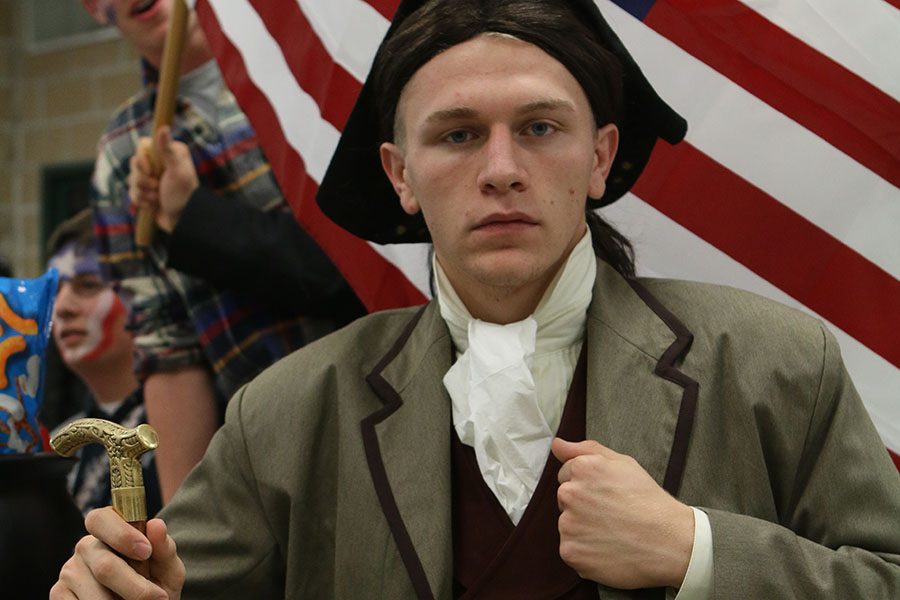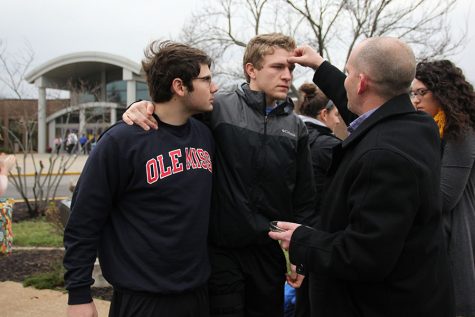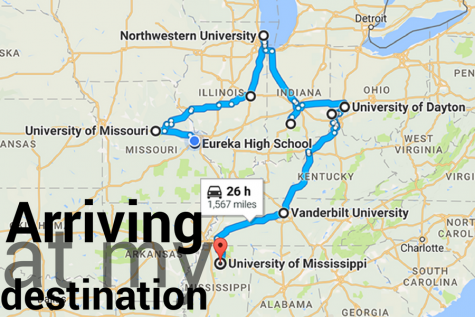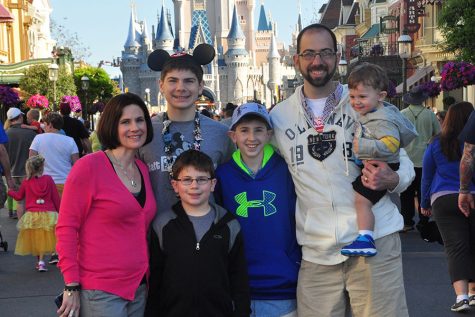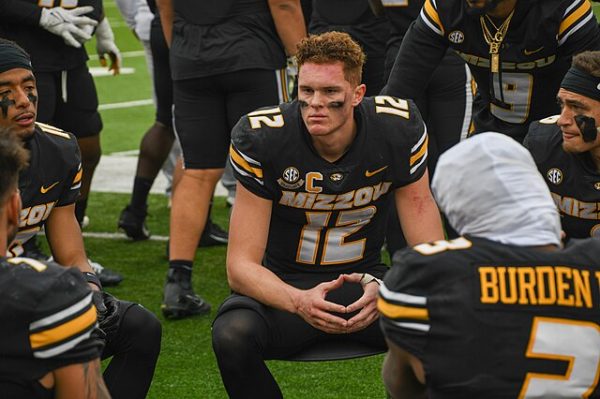Opinions: From the desk: A founding flaw
Dressed as a Founding Father, Ryan Giesing (12) attends the journalism STL Trivia Night, Oct. 29, 2015. My friends and I dressed up in as much American clothing as possible for the Halloween-themed event. By the end, we were awarded a cauldron full of candy for having the best-dressed table. As much as I adore the Founding Fathers, the electoral college is one thing that they got wrong.
Bipartisan issue: an issue supported by both sides.
Such cooperation is hard to find in today’s political culture. Everything from gun ownership to healthcare to immigration splits people right down the middle with two radically different solutions.
There’s one problem, however, that could unite all of us: the electoral college.
Everyone hates the electoral college– or at least everyone should. It protects no one, defends no one’s rights and doesn’t serve a purpose.
With the 2016 election, however, many staunch conservatives are standing in firm defense of the system because, without it, President-elect Donald Trump would not be selecting his cabinet right now.
Now that it’s all over, Secretary Hillary Clinton received 232 electoral votes, but Mr. Trump received a majority with 306 electoral votes. Despite this outcome, Mrs. Clinton still took the popular vote victory by over two million votes.
If it were the other way around, Trump supporters would be outraged claiming that the entire election is rigged.
It’s one of the biggest pieces of irony in our culture today. No one says it better than Mr. Trump himself. He stated that “I would like to promise and pledge to all of my voters and supporters and to all of the people of the United States that I will totally accept the results of this great and historic presidential election” …pause for dramatic effect… “if I win.”
And he did win, so now Republicans are clutching to the electoral college like it’s their own, precious, first-born son.
For the record, I got a 32 on the political spectrum quiz last year in AP Government class, but I was calling for the abolition of the electoral college long before Mr. Trump ever decided to run for office.
It’s a broken system put into the Constitution by the founding fathers in order to control the common everyday citizen.
At least five times in our 57 presidential elections, the winner of the presidency has also been the loser of the popular vote. That’s a failure rate of almost nine percent!
That’s equivalent to a basketball game where, by some quirk of the rules, there was a nine percent chance that the team with fewer points could end up as the winner, Nobody would tolerate that in sports, and we shouldn’t allow it to continue in politics.
Those in support of the electoral college claim that it protects states rights.
This is obviously false because when the election goes into full swing, no serious candidate is going to Montana, Delaware, Texas or California. The first two have so few electoral votes that they’re almost irrelevant, and the second two are solid red and blue states. No matter how hard an elephant tries, he is never going to win over California.
The majority of campaign visits are going to be spent in places like Florida, Ohio, Michigan or Pennsylvania. These places are known as swing states. Within them are an almost equal number of Republican and Democratic voters.
Voters in these states easily have their voices heard because the candidates care about them. For Democrats in Texas, their vote means nothing.
The electoral college’s a winner-take-all system translates into each candidate needing just one more vote than the other to gain all of the electors.
By every definition of the word, this is not democracy.
“Haha!” someone says. “We technically don’t live in a democracy. The United States of America is a Republic where we vote for others to represent us and vote for our best interest.”
That’s a good point, but it doesn’t justify the purposeful distortion of votes from one state to another.
If the number of electoral votes is divided by the population of each state, it’s possible to calculate the value of each person’s individual vote. The numbers are astonishing. One voter from Texas should not be equivalent to three voters in Vermont.
When one person’s vote is worth more than another’s strictly because of where they live, there is a fatal flaw in the way that the nation is run.
A strict popular vote will eliminate all of these problems and put the focus on whom each individual person wants to represent them. This is more fair, just and moral than the corrupt system that the founding fathers put into place.
If the United States of America wants to continue to be considered a democracy, it needs to eliminate a general election that grants some people more power than others.
Your donation will support the student journalists of Eureka High School - MO. Your contribution will allow us to purchase equipment and cover our annual website hosting costs.

This is Nick’s third semester on the EHS hub staff. He is the Digital Media Editor-in-chief. You can follow him on twitter @nweaverEHS_hub.
He enjoys...

This is Ryan's second year on staff. You can follow him on twitter @rbircherEHS_hub. Ryan has worked at Walmart for 2 years. His favorite food is chicken...















